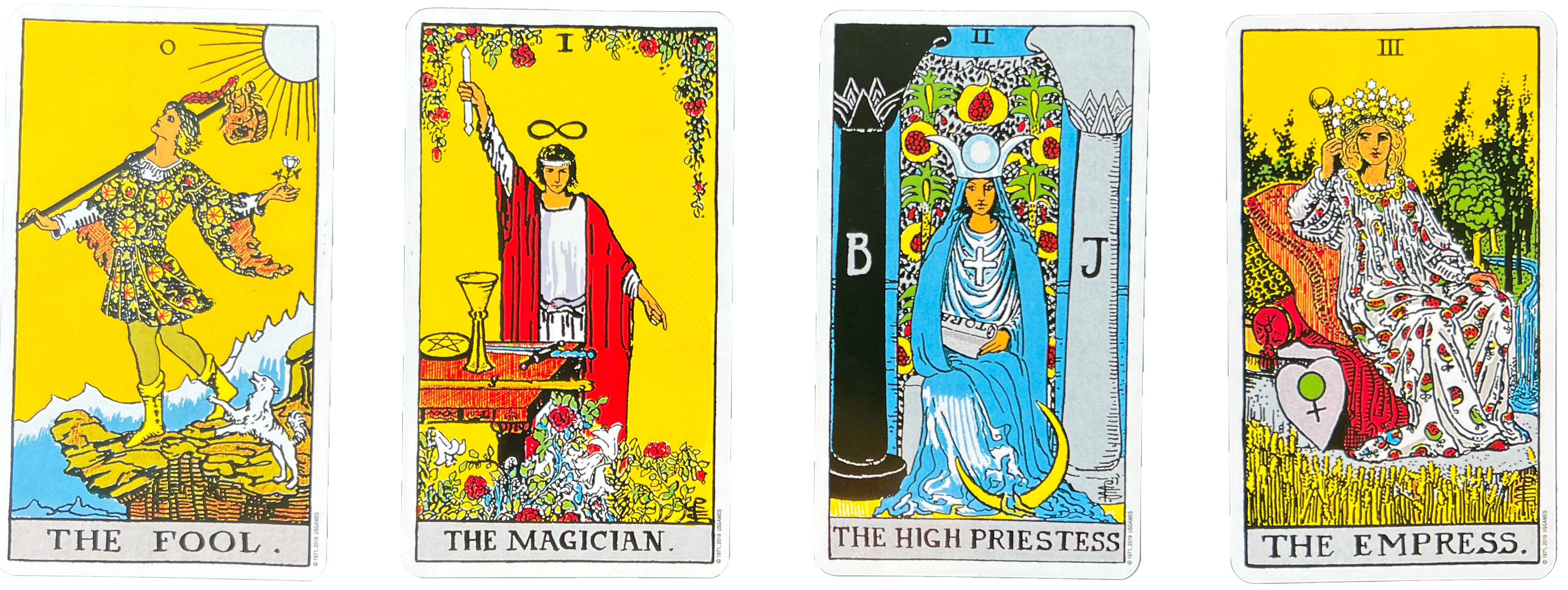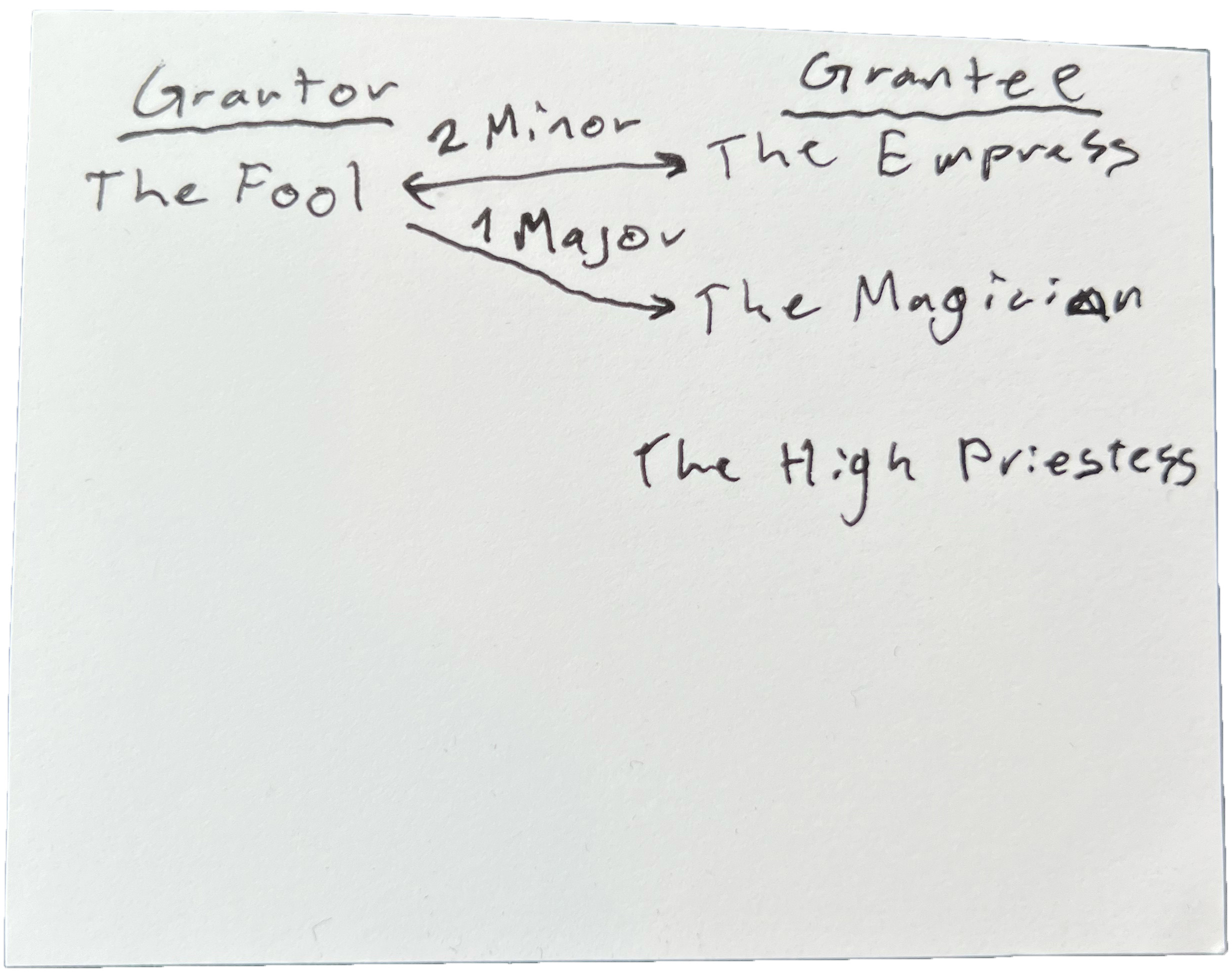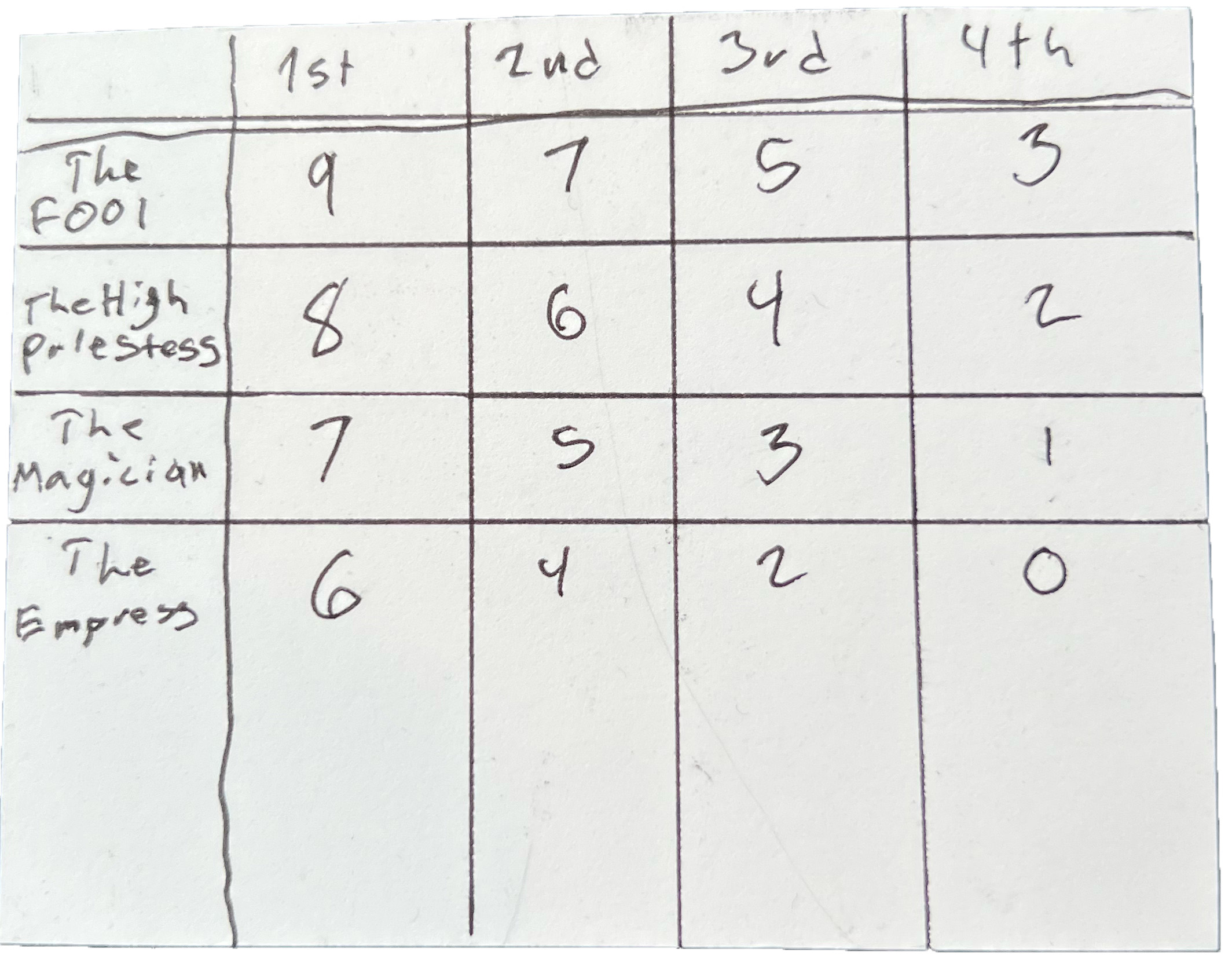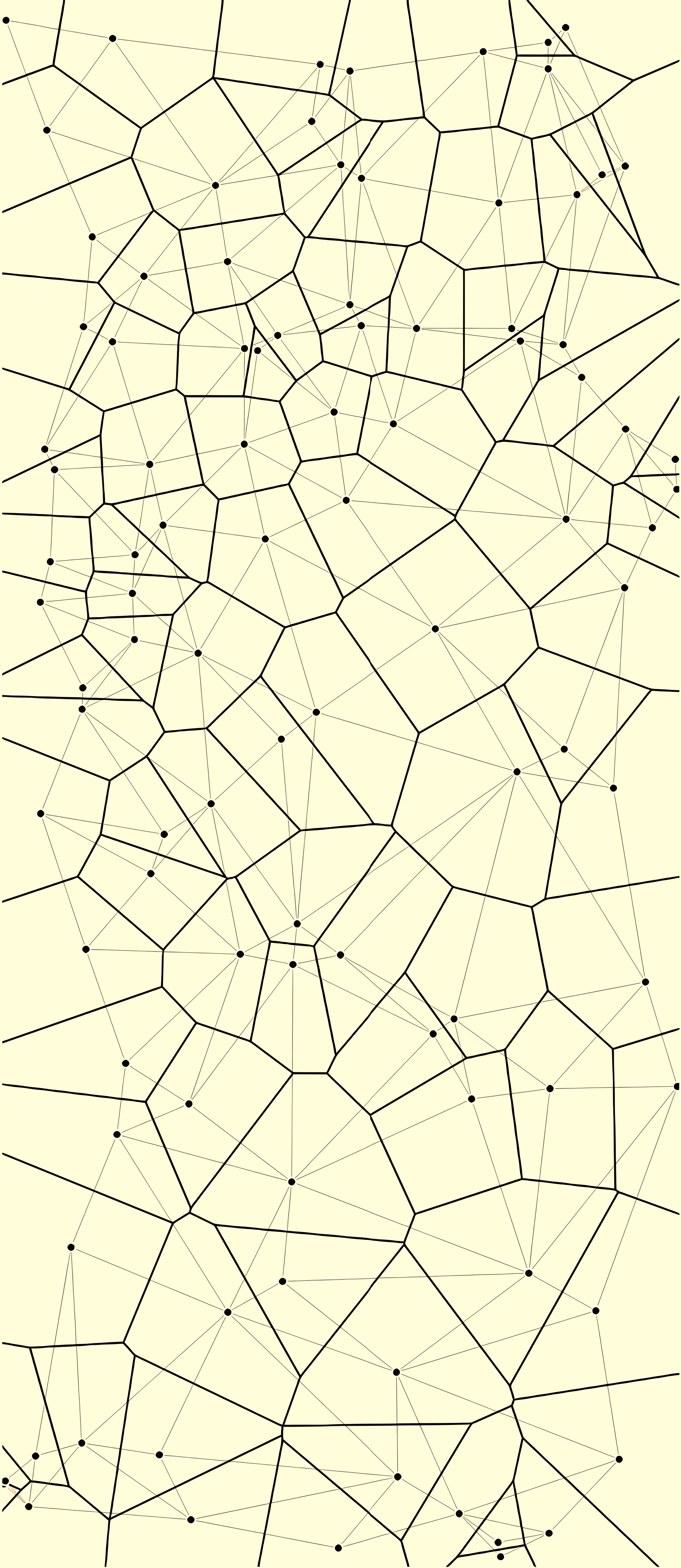
Evaluation
Because this game isn’t trying to be something groundbreaking and original, my goal was to make this game thematic and balanced. This game is based on Scum because of, for reasons I will explain later, the social hierarchy and how a significant portion of the game is played with multiple cards at a time.
The reason why I felt this was a good game to make use of the Tarot card format was because of the social hierarchy. If the social hierarchy was decided by a card draw, the game would make great use of the heart-of-the-cards and fortune themes. For balance, the amount of points you gain per hand is proportional to how dispossessed you are given your role. This part made a lot of sense and added an interesting twist.
Another decision I had to make with using Tarot cards was what to do with the major arcana cards. I chose to make them act as wild cards while also not disrupting the power of triples and quadruples. I did this by only allowing one wild card per play (or a whole set of wilds). Now, to play a triple, you must play either a triple, a double with a wild, or a triple of wilds. With how you play multiple cards each play, it makes it so the wilds don’t get out of control. It also added an interesting decision for each play.
This game had surprisingly good balance. Or, at least it seemed that way after four hands. What I can say for sure is that it didn’t immediately feel horrible to be assigned The Fool or The Empress (The Fool is the most dispossessed and The Empress wins the least amount of points), which is a great success in itself. I ended up winning and it isn’t obvious how much of that is because I got The High Priestess and The Magician roles the most, which is another good sign. Overall, I am happy with the perceived balance.
Rules
Tarot Cards
This game is played with a deck of Tarot cards. If you already know about Tarot cards, you may skip this section. A deck of Tarot cards is made up of 22 major arcana cards (including named cards like The Fool, The Magician, The High Priestess, and The Empress) and 56 Minor arcana cards. Minor arcana cards come in the suits Cups, Swords, Pentacles, and Wands, in the ranks Aces, 2–10, Pages, Knights, Queens and then Kings.
Setup
Take out The Fool, The Magician, The High Priestess and The Empress and shuffle the rest of the deck. Randomly mix up those four previously mentioned cards and deal one to each player so everyone can see. Each person takes the role of the card they were passed. Deal 17 cards to The Magician, 18 cards to The Empress, 19 cards to The High Priestess and 20 cards to The Fool. Players will then take their role card and the other cards they were dealt: this becomes their hand.

After players organize their cards, The Fool passes The Magician one major arcana card and The Empress two of his highest minor arcana cards, and The Empress passes The Fool two of her worst minor arcana cards by the player’s opinion.
The Empress leads play to begin.
Play
This game is a variation of a game known by multiple names: Scum, President, Kings and Peasants, Asshole, Rich Man Poor Man, et cetera. With this game, I take the foundational rules of that game and fit it to play with Tarot cards. If you already know the rules to that game, you may skip to the Wild Cards section.
The person who won the previous series (or The Empress if there was no previous series) leads with a set of cards all the same rank. For example, a set can be a single 5, a pair of 5s, a triple of 5s, or a quadruple of 5s. Play proceeds clockwise. After this first set of cards is played, the next player may play a set of the same number of cards of all the same rank that is higher than the rank of the previous set of cards. But players also may choose to pass instead of playing. Once a player passes, they cannot play that series again. After all other players pass, the player who didn’t pass wins the series and may start the next series with a set of one or more cards of the same rank.
Wild Cards
Each major arcana card acts as a wild card. You may play wild cards in two ways: you may add one wild card to increase the amount of cards in a set by one, or you may play the same amount of wild cards as cards in the set to instantly win the series.
Scoring

Depending on what role players were dealt and what position they came in, players earn differing amounts of points. The Fool earns 9 points for 1st place, 7 points for 2nd place, 5 points for 3rd place and 3 points for 4th place; The High Priestess earns 8 points for 1st place, 6 points for 2nd place, 4 points for 3rd place and 2 points for 4th place; The Magician earns 7 points for 1st place, 5 points for 2nd place, 3 points for 3rd place and 1 point for 4th place; The Empress earns 6 points for 1st place, 4 points for 2nd place, 2 points for 3rd place and 0 points for 4th place.
The winner is the player with the most points. For a more of a competitive experience, players can play four hands, each getting one turn as each role.
